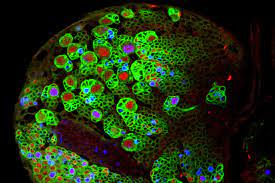Monitoring Desk
London: Researchers at the Brain Tumour Research Centre of Excellence at the University of Plymouth have leveraged the humble fruit fly, Drosophila, to gain insights into halting the growth of brain tumors.
Utilizing the fruit fly model, experts have successfully identified and scrutinized cells in their earliest stages of growth. This pioneering approach has particularly shed light on glioma tumors, encompassing aggressive variants like glioblastoma.
Characterized by rapid growth and the infiltration of healthy brain tissue, glioblastomas present a formidable challenge in treatment, with poor survival rates. Symptoms such as worsening headaches, nausea, blurred vision, and seizures are indicative of brain tumors.
The significance of this research extends beyond mere academic curiosity. Glioblastomas, though they can affect individuals of any age, are more prevalent in older adults.
By delving into the molecular mechanisms underlying tumor growth in these tiny insects, scientists are paving the way for potential therapeutic interventions that could ultimately benefit patients battling these devastating brain tumors.
According to Dr. Claudia Barros, their research sheds light on preparatory mechanisms crucial for tumor development. By utilizing the fruit fly Drosophila as a model, the team scrutinized cells at the initial stages of brain tumor formation, revealing stark metabolic and protein balance differences compared to normal cells.
Dr. Karen Noble, from the Brain Tumour Research charity, highlighted the potential of these early discoveries in guiding the development of more effective treatments targeting tumor cells, thereby enhancing patient outcomes.
This innovative study underscores the importance of unconventional model organisms in biomedical research and offers hope for more effective treatments in the ongoing fight against glioblastoma and other malignant brain tumors.







